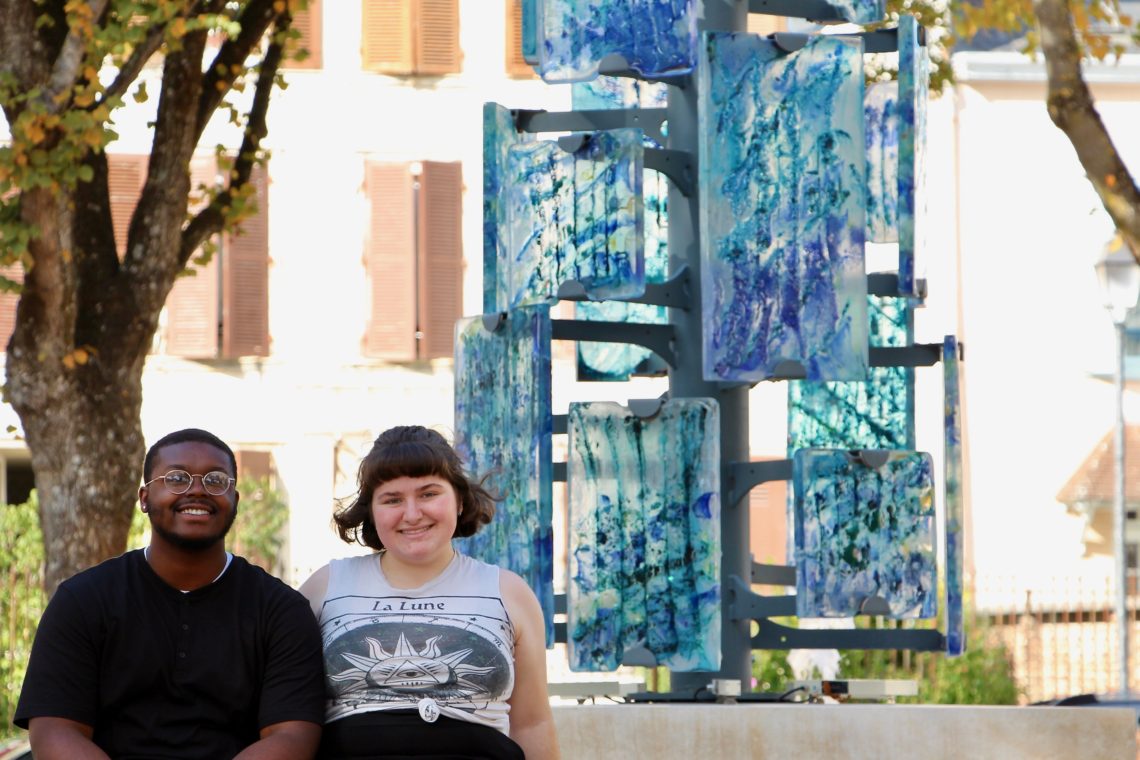
Everything You Need to Know about Teaching in France with TAPIF
The Teaching Assistant Program in France (TAPIF), is an opportunity for Americans to teach English in France for an academic year. Each year, France Éducation International hires approximately 1,500 Americans to teach English to French students in up to 3 schools. Applicants must be native English speakers, have completed at least 3 years of higher education, have at least a B1 level in French on the CEFR scale, and be aged from 20-35 years old.
Jalen and I spent years preparing to apply – and we are both language assistants for the 2019-2020 academic year! Keep reading to find out more about the program.
Ideal Participants
Those who enjoy teaching and have a background in working with young people are great for this program. Though it isn’t a must for all applicants, people with certifications or an interest in teaching English as a foreign language are great fits for the job as well. Assistants have the opportunity to teach English to students aged from primary school to high school all over France and in the overseas departments – meaning that each assistant has a unique experience with the program.
During our time at the University of Mary Washington, Jalen and I both acquired experience working with young people. I was a Resident Assistant (RA) for 5 semesters, a Senior Resident Assistant (SRA) for 2 semesters, and served as the Residence Life Assistant the summer after graduation. Jalen was an RA for 4 semesters, a Summer Conference Assistant for 2 summer terms, and a private French tutor for an academic year. Needless to say, we knew a lot about teaching and supporting young people and felt qualified to apply our skills by teaching French youth.
Motivated and independent people are best for this program as living and working in France as an American – and all the administrative processes that come with it – is no easy feat. Procuring a visa, validating said visa with OFII, traveling to France, opening a bank account, signing up for Social Security, obtaining lodging, learning to use public transit, beginning a new job, and much more all in your non-native language can be difficult, expensive, and is not for the faint-of-heart. It’s important to be ready to push the boundaries of your American comfort zone if you decide to participate in TAPIF!
As I mentioned, Jalen and I had been planning to do this program for years. Therefore, we spent quite some time preparing mentally and financially for the obstacles the program presents. This preparation has certainly paid off, as we have yet to encounter any unexpected complications that we hadn’t researched beforehand. Being ready for the program’s challenges is half the battle!
The Drawbacks
Salary
It’s no secret that TAPIFers don’t have lots of money to spare – the net monthly stipend comes to a bit under 790 €. The program recommends that you come to France with $2,000 to cover startup costs and states that participants should be prepared to spend money from their personal savings if they are planning to travel often. The 790 € a month is certainly fair – assistants only work 12-hour weeks and have ample vacation time – but applicants should be aware that budgeting is an important part of the TAPIF lifestyle.
Schedule
Though assistants are only scheduled for 12-hour work weeks, we often spend more than just those hours “working.” For example, lesson planning and activity preparation must happen outside of our remunerated hours. Furthermore, many assistants do not teach consecutive hours at their schools, and may even teach at more than one school on a given day. For example, every other Friday, Jalen has classes at 8:00AM, 9:00AM, 11:00AM, 3:00PM, and 4:00PM. It wouldn’t be possible for him to leave and return to school during the breaks in classes, meaning he spends 9 hours at the school and has a workday that totals 13 hours counting transit time! His schedule shows that while assistants work only for 12 hours per week in theory, we are often “at work” for much more time than that in practice.
(Lack of) Consistency
TAPIFers very rarely have consistent experiences. Here are just a couple of examples:
- The cost of living varies wildly across France and in the overseas departments. An assistant in the Académie of Paris and an assistant in the Académie of Aix-Marseille, for example, would have drastically different lifestyles if they both lived only on the 790 € stipend. In fact, the TAPIF website states that the stipend is not enough for an assistant to live like a typical French student in the Parisian region. Elsewhere, however, the stipend allows assistants to live a normal student lifestyle.
- Similarly, some assistants work in very populous cities, like Marseille (population: 861,635), while others are in smaller towns, like Bar-sur-Aube (population: 4,978). The availability of public transport, touristic activities, shopping, restaurants, and lodging is extremely different depending on where an assistant is placed. Moreover, assistants are not always given their first choice in location. Applicants should avoid setting their heart on a specific city and be ready to teach anywhere!
The Benefits
Vacation
Assistants benefit from paid vacation time – and lots of it! From the start date of employment, October 1st, to the end date, April 30th, assistants have a total of about 8 weeks off! This means that TAPIFers have abundant time to travel Europe, lesson plan, relax, receive visitors, and really immerse ourselves in French culture.

French Language Skills
Assistants have the opportunity to improve or put into practice our spoken French during the program. Though the classes that assistants teach are conducted solely in English, working with French colleagues and living daily life in France presents plentiful occasions to speak the language. Whether you are B1 and looking to increase your French abilities or C2 and looking to converse with natives, a year with TAPIF will give you the chance to do so.
Living à la française
Assistants get to become well-acquainted with the French way of life. From setting up a bank account, to gossiping in the teachers’ lounge, to working with assorted French students, to dealing with public transportation strikes, to lounging for hours at a café – assistants truly get a taste of what it is like to be French. The slower pace of life and fascinating cultural differences are sure to interest American Francophiles!

Our “Why”
Participating in TAPIF has allowed Jalen and I to begin to realize our dream of living in France. For us, TAPIF was a better way to achieve this goal than participating in a long-term study abroad program in France during college. With TAPIF, we get to stay in France for an academic year, we aren’t paying any school fees, and we receive a monthly stipend. This program presented a wonderful opportunity for us to spend a considerable amount of time living in France independently.
Furthermore, we knew a year with TAPIF would be the perfect time to explore cities with schools that we are considering for our master’s degrees. Jalen and I are taking advantage of our generous vacation time to visit schools and their surrounding areas to help us make a decision when the time comes to choose a school to attend. Whether you are considering going back to school or not, TAPIF allows you plenty of time to travel and discover France.
Final Thoughts
Be aware that if you apply to and participate in TAPIF, your experience will likely include both positive and negative incidents that will differ from nearly everyone else’s. The schools, teachers, and students of the many regions of France as well as the overseas departments are unique, meaning that no two assistants will have quite the same adventure – try to embrace it! All in all, TAPIF is a special way to spend a year in France and Jalen and I wholeheartedly recommend taking the plunge. Visit TAPIF’s website to apply and check out TAPIF’s FAQ page for more information. If you have questions about our TAPIF experience or have been a language assistant yourself, let us know in a comment!
Check out our video to prepare to participate in TAPIF!
You May Also Like

How to Teach English in France as a Couple
May 20, 2020
What is Teaching in France Really Like? TAPIF Diary #6
April 29, 2020

